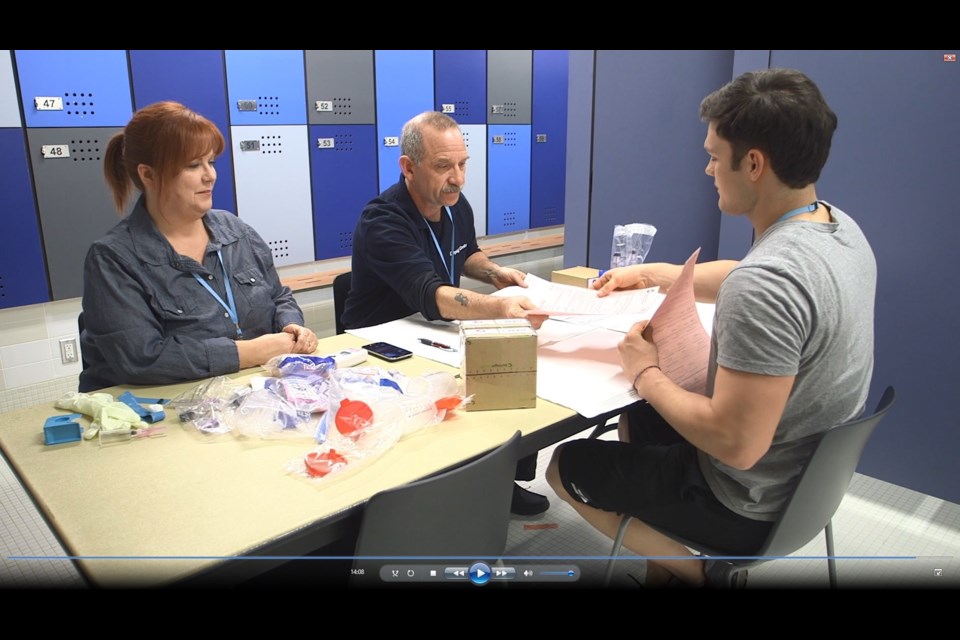Did you see the job posting by the for a position based in the Sea to Sky?
The organization is seeking a based in or near Squamish, Whistler, Vancouver and Thunder Bay.
The CCES is the national, not-for-profit organization responsible for administrating the Canadian Anti-Doping Program.
The posting says the person hired would be "responsible for conducting urine and blood sample collection sessions, which take place both in-competition (events) and out-of-competition (training and home visits)."
But wait, why in the corridor?
CCES's Elizabeth Carson told The ߣÄĚÉçÇř that having a person based in the corridor would give them access to various athletes and events.
"In Squamish, there are athletes who live there; there are events taking place ... particularly given the legacy of events over the 2010 games, and there are venues there."
Who is subject to anti-doping rules?
The anti-doping program applies to all national sporting organizations in Canada.
Carson noted that the Olympics, Paralympics, Commonwealth Games, and Pan-American Games all operate under a standard set of anti-doping rules, which are then applied in each country. In Canada, CCES is the organization tasked with applying those rules to sport organizations that receive funding from Sport Canada — the federal government program that is a branch of the Department of Canadian Heritage.
Student athletes at the university and college levels are also subject to anti-doping rules so can be tested.
But it would be impossible to test all these athletes, Carson said, so the organization has to narrow its focus.
"We work with each national sport organization to determine to whom the rules should apply, specifically, so that we are focused in terms of our testing," she said.
Currently, the CCES's athlete pool includes about 5,200 athletes across Canada.
The organization is independent of sports organizations and the government, Carson said. CCES receives its funding from , including Sport Canada — fee-for-service revenues and grants.
Years ago, testing was done by the sports organizations themselves.
That changed after the , which came after the Ben Johnson scandal in Seoul. Johnson lost his 1988 100-metre Olympic gold medal when his urine tested positive for a banned substance.
"The determination from that [inquiry] was there needs to be an independent organization managing anti-doping to ensure that there's transparency, and there are no more questions about the independence of a sport handling their own infractions. So that's the impetus of the creation of our organization — to ensure that it is independently managed."
Details about the job
The local position is part-time casual.
Flexibility is needed, given the nature of the job, Carson said. It often requires early mornings, evenings and weekends and holidays.
"A lot of our officers are retired and use that as a way to give back to sport and really enjoy the interactions with athletes and contributing to the integrity of sport," she said.
The role will include going to the athletes either at a venue or at their homes to notify them they have been selected for a doping test.
"The main task is to guide them through the provision of a urine and sometimes a blood sample. They witness the provision of the urine sample, and they'll complete related paperwork — all through this, ensuring that they're maintaining the integrity of the sample … And then, it ends by them shipping the samples that they've collected to the lab in Montreal," she said.
The role is best suited to folks who can be very detail-oriented, follow technical instructions and have a calm temperament.
"They are often the first point of contact for an athlete who's going through this for the first time. So being able to explain the process and guide a novice athlete through the collection process."
Find out more at .




